ABOUT US
impact
“No one will protect what they don't care about, and no one will care about what they have never experienced.”
David Attenborough
Why We Exist
Our program activities and curriculum are research-backed and carefully designed to meet traditional learning standards and address pressing developmental, learning, and access challenges in K-8, outdoor education.
Cultivate Curiosity
Post Pigeon EDU’s curiosity-centered curriculum involves practicing important skills like oral communication, observation, and other “21st-century skills” that can serve them well in all arenas of life.
Developing these durable skills are critical for development and future success. Notably, a study that sought to identify the most critical 21st-century skills by conducting an empirical examination of real-world job advertisements found that, “the four most in-demand 21st-century skills found across roughly 142,000 job advertisements were oral communication and written communication, collaboration, and problem solving” (Rios et al., 2020). Through our curriculum, students work together to learn about new places, collaborate on and write questions to outdoor leaders, and think about what problems they can help solve in their own communities.
A Stanford study conducted on the relationship between inquiry-based learning, technology, and curriculum design points out that “participation in inquiry can provide students with the opportunity to achieve three inter-related learning objectives: the development of general inquiry abilities, the acquisition of specific investigation skills, and the understanding of science concepts and principles.” In other words, “ inquiry provokes active learning and student agency through questioning, consideration of possibilities and alternatives, and application of knowledge.”
Sparking curiosity and deeper levels of inquiry and exploration are key goals of our program.
As the world becomes increasingly globalized and technology changes the flow and dissemination of information, we believe that learning should not be confined within the walls of a classroom. As Linda Christensen explains, “our students need opportunities to transform themselves, their writing, and their reading, but they also need opportunities to take that possibility for transformation out of the classroom and into the world” (2009). It is important to create opportunities for real-world examples and connections to encourage taking real-world action.
Improve Outdoor Access
A 2017 report conducted by Outdoor Foundation found that when people were exposed to the outdoors as children, they were much more likely to participate in the outdoors in some ways as adults.
Our programs provide exposure to public lands and outdoor leadership to spark curiosity about the outdoors and the world at large.
What does "outdoors for all" really mean?
Although public lands are technically open for all to enjoy, the current reality of outdoor participation and access does not reflect this. To this day, the majority of visitors to National Parks and participants in outdoor recreation are white/affluent. For historically marginalized groups in particular, exploring and engaging with National Parks can be prohibitive due to a combination of cultural, financial, historical, geographic, and mobility-related barriers.
Our Reach
Hover over each of the markers on the map to see the National Parks and other public lands we are partnered with and some of the classrooms we reach.
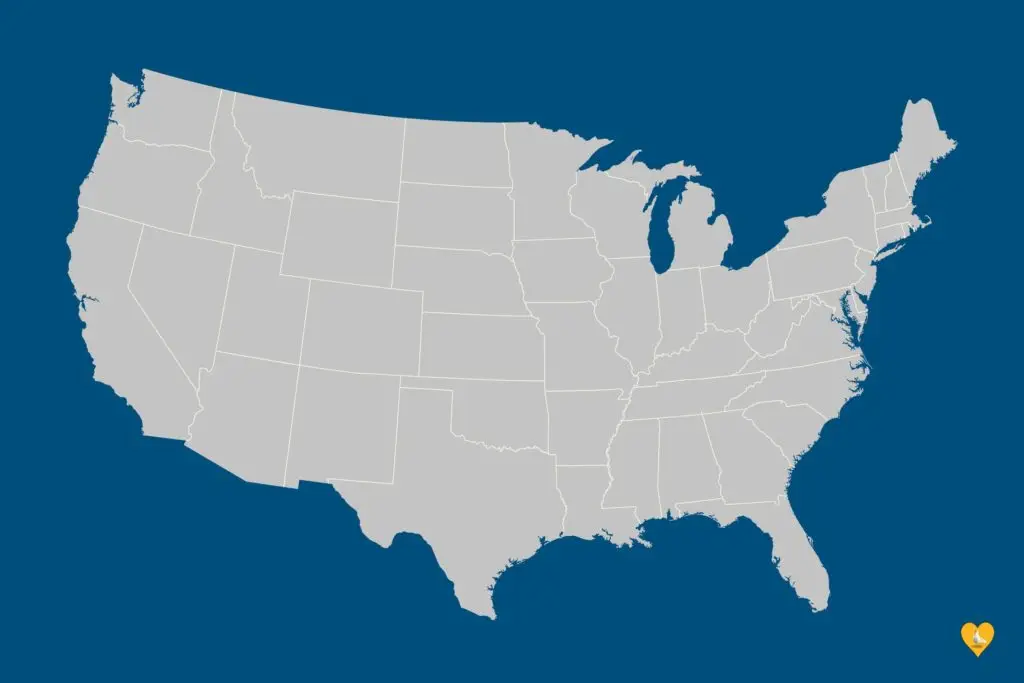
![]() Yosemite National Park
Yosemite National Park
![]() Arches National Park
Arches National Park
![]() Canyonlands National Park
Canyonlands National Park
![]() Everglades National Park
Everglades National Park
![]() Acadia National Park
Acadia National Park
![]() Black Canyon of the Gunnison National Park
Black Canyon of the Gunnison National Park
![]() Curecanti National Recreation Area
Curecanti National Recreation Area
Okefenokee Swamp and National Wildlife Refuge
Boulder, CO Classroom
Austin, TX Classroom
Jacksonville, FL Classroom
Atlanta, GA Classroom
Allentown, PA Classroom
Golden Valley, MN Classroom
Mantua, NJ Classroom
What do teachers think?
Jacksonville, FL
Program Outcomes IRL
After one group of 5th graders learned about deforestation in their classroom, they reached out to Everglades National Park and posed questions to Park Ranger Dylann. After receiving their video postcard through Post Pigeon, they made it a mission to continue learning and thinking of ways they can take action against deforestation. One idea? To form a group called "The Forest Defenders" and teach the first graders at their school about the devastating impact of deforestation and what they can do to help. In other words, they got curious about an issue they were interested in, connected with a Ranger who could help contextualize and round-out their investigation, and they got involved by coming up with solutions of their own and passing on what they learned to the next generation.
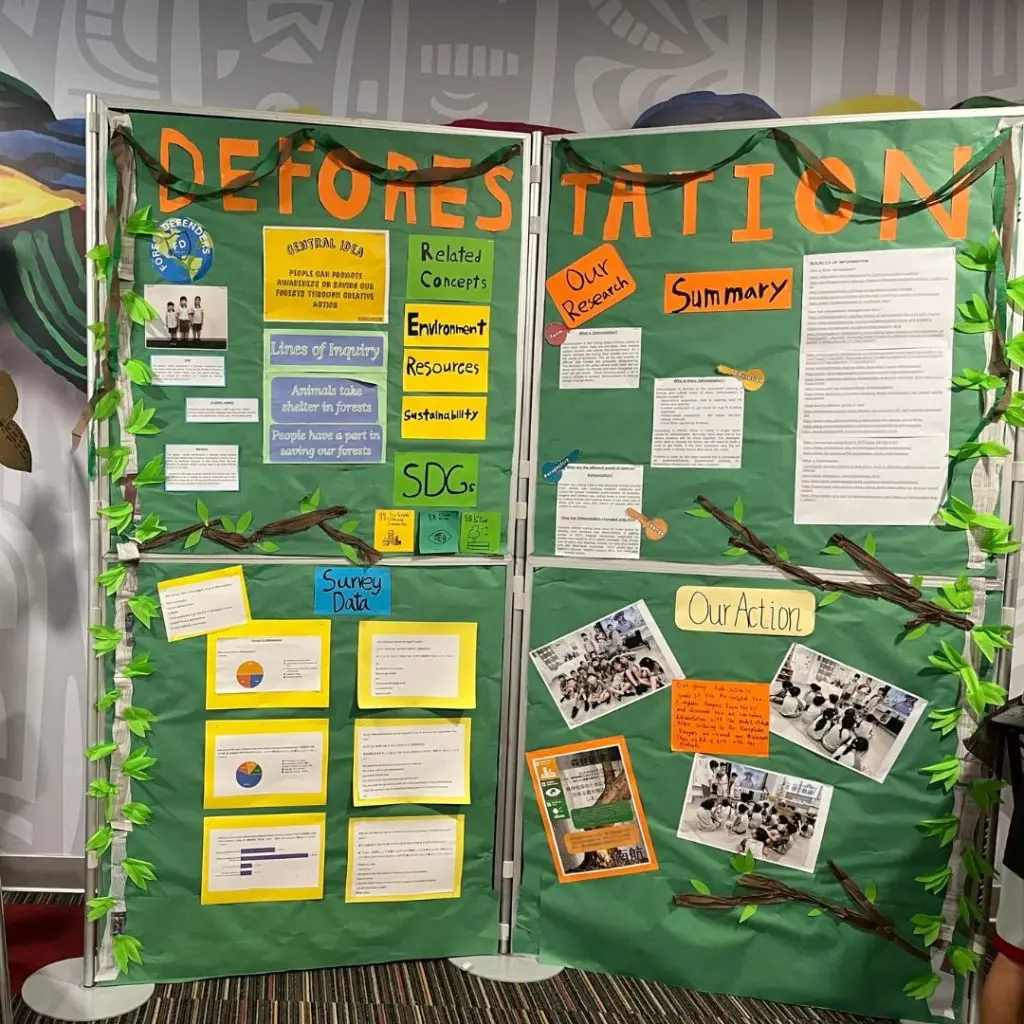
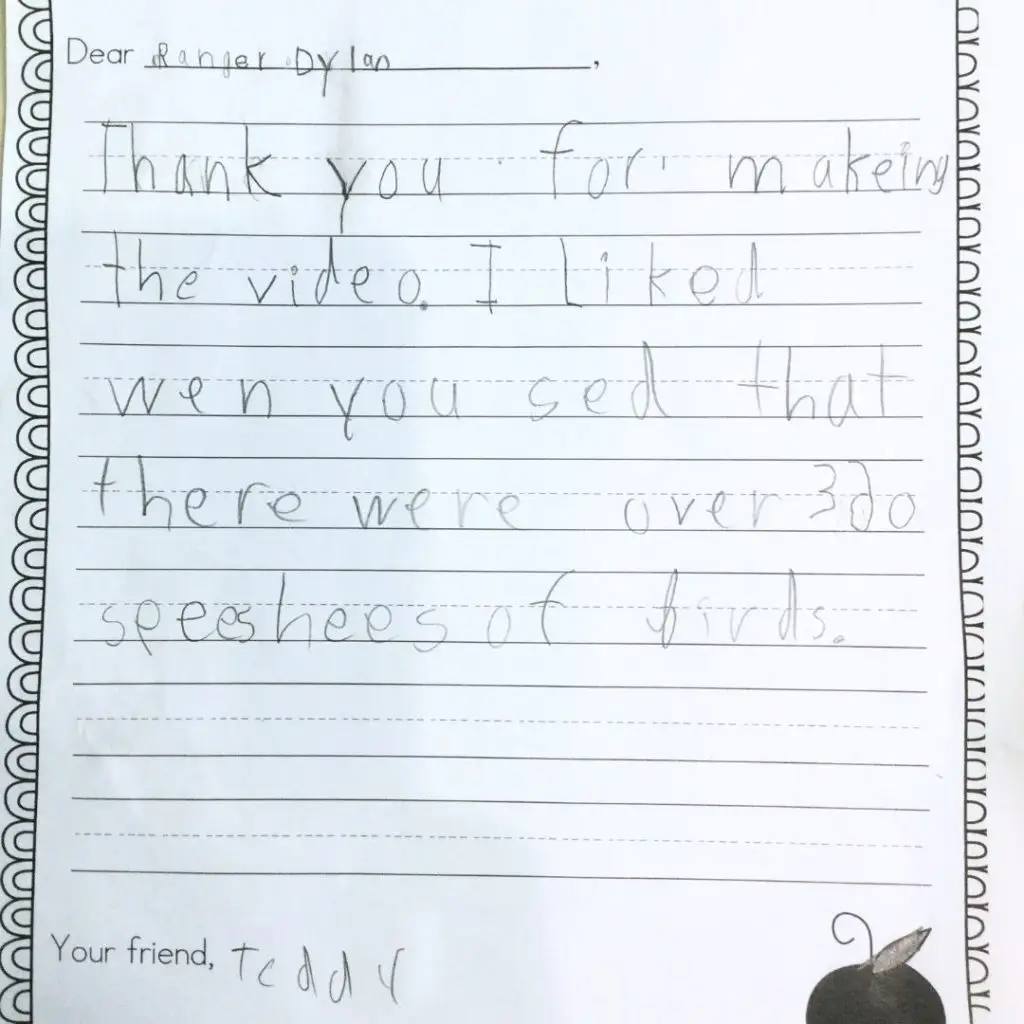
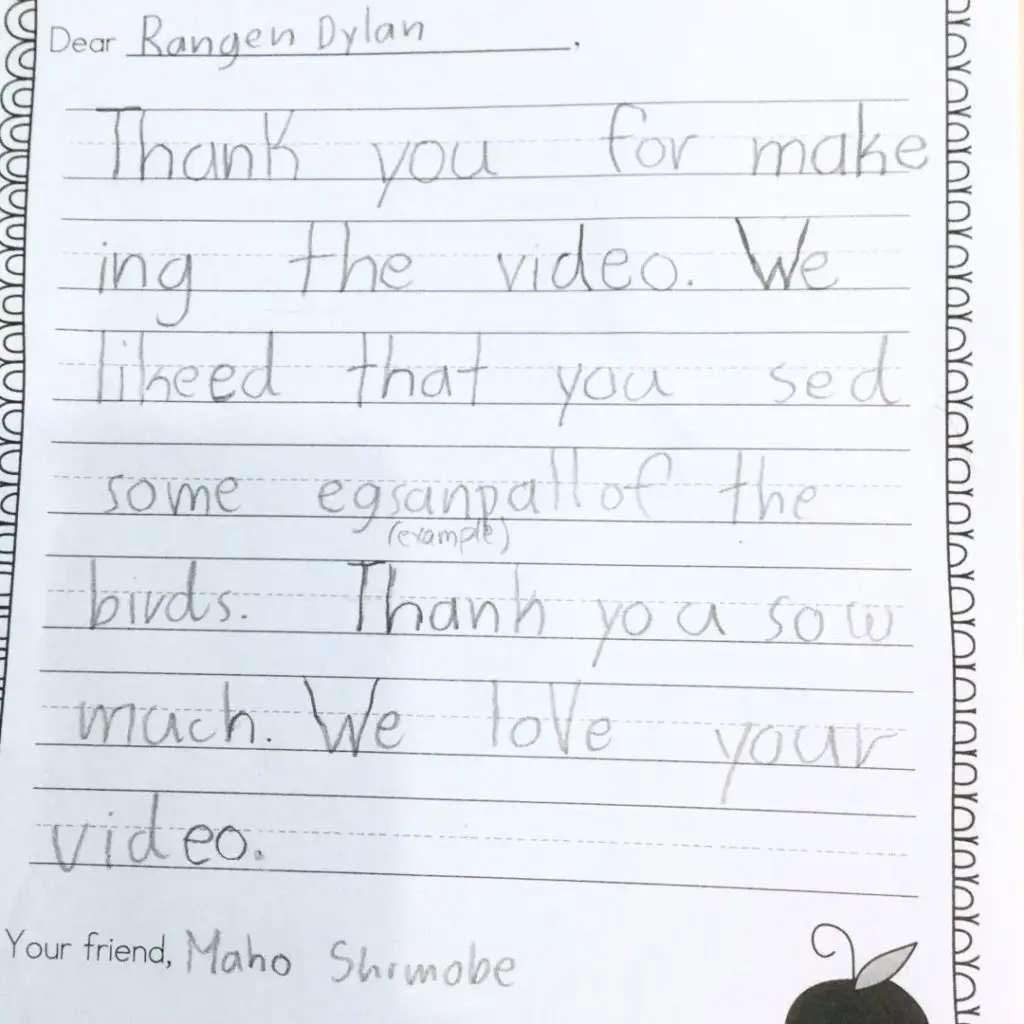
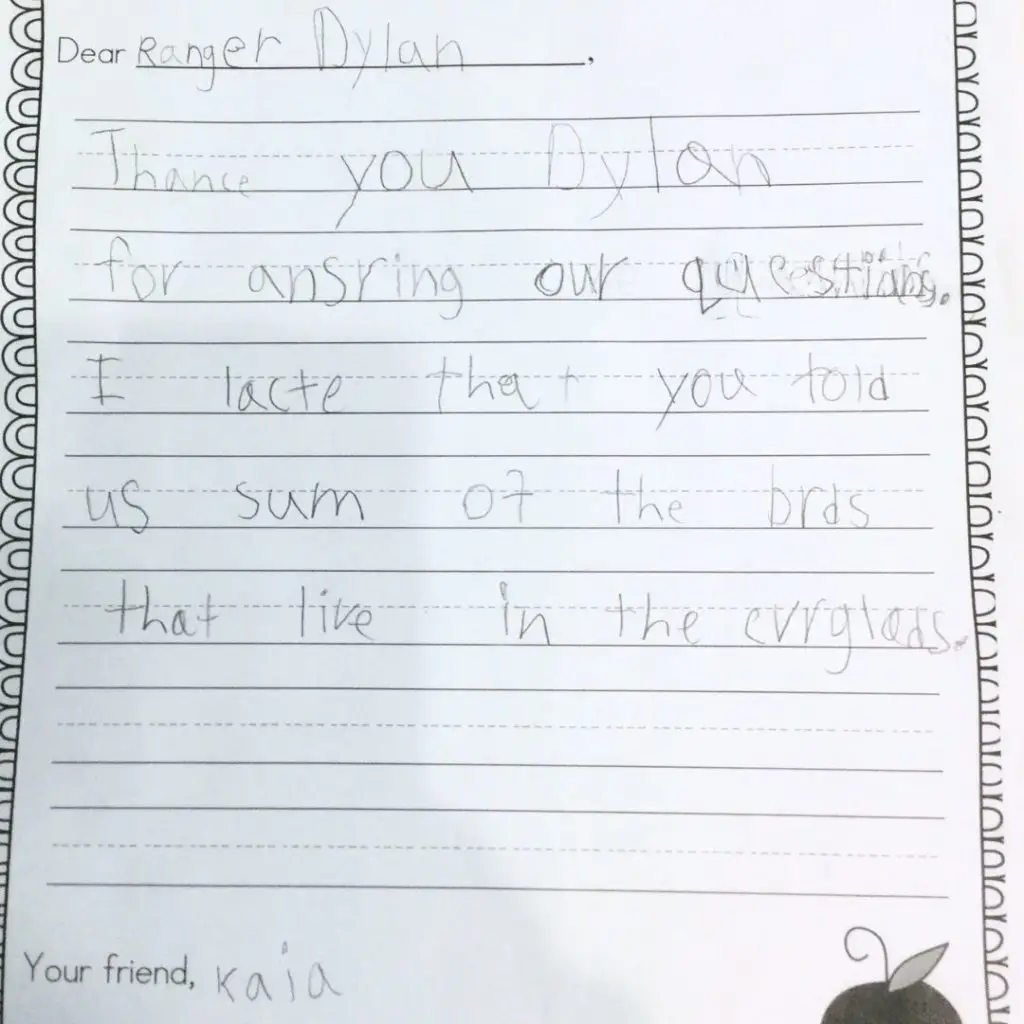
21st century skills
Click edit button to change this text. Lorem ipsum dolor sit amet, consectetur adipiscing elit.
Inquiry Based Learning
Click edit button to change this text. Lorem ipsum dolor sit amet, consectetur adipiscing elit.
Real-world Connections
Click edit button to change this text. Lorem ipsum dolor sit amet, consectetur adipiscing elit.
Support
Click edit button to change this text. Lorem ipsum dolor sit amet, consectetur adipiscing elit.
Support
Click edit button to change this text. Lorem ipsum dolor sit amet, consectetur adipiscing elit.
Support
Click edit button to change this text. Lorem ipsum dolor sit amet, consectetur adipiscing elit.
Outdoor Access & Stewardship
Inquiry Based Learning
Click edit button to change this text. Lorem ipsum dolor sit amet, consectetur adipiscing elit.
Support
Click edit button to change this text. Lorem ipsum dolor sit amet, consectetur adipiscing elit.
barriers to accessing the outdoors
Click edit button to change this text. Lorem ipsum dolor sit amet, consectetur adipiscing elit.
Support
Click edit button to change this text. Lorem ipsum dolor sit amet, consectetur adipiscing elit.